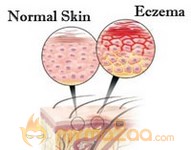A deficiency of vitamin E is rare in humans. Vitamin E is present in many of the foods we eat on a daily basis, Wheat, Sunflower seeds, Hazelnuts, Soybean oil (Soy is present in just about every packaged product on the market), Broccoli and etc. Though studies indicate we don't get the full recommended daily intake of vitamin E, which is twenty-two and a half international units. Since these studies came out many people began to worry that they weren't getting enough of the vitamin and began taking mega doses of vitamin E. While in some cases its certainly true that people need supplementation, such as pregnant or lactating women its not entirely necessary for the general population. Vitamin E deficiency has never been proven in a healthy human. It's been shown in other species and in those with medical conditions that limit the body's ability to absorb Vitamin E. It may be possible to develop a deficiency if you maintain a very strict and limited low fat diet for a period of time, but other vitamin deficiencies will show up as well. A deficiency can occur in people with an inability to absorb fat, because some fat is needed in the digestive tract for the absorption of vitamin E. Someone with a genetic abnormality in their alpha-tocopherol transfer protein will have a deficiency of vitamin E. Lastly premature babies will be deficient in the vitamin or low birth weight babies because of a poor vitamin E transfer from the mother via the placenta to the baby or in the case of preemies simply a lack of time to transfer the vitamin. A vitamin E deficiency also seems to be connected to Zinc deficiencies. The body may use zinc in absorbing or making use of vitamin E or the diet could be lacking in multiple vitamins and nutrients. Other conditions that can result in a vitamin deficiency are various intestinal disorders. Those suffering from Crohn's disease often experience diarrhea and subsequent inability to absorb vitamins. If you lack the ability to secrete bile you may need a special form of water soluble vitamin E since bile helps with the absorption of fats in the digestive tract. Some symptoms of vitamin E deficiency are sometimes nerve degenerations in the hands and feet, muscle weakness, eventual blindness. In infants you may notice irritability and edema. While adults can develop anemia, which is a lack of red blood cells, so you may notice fatigue, weakness, and paleness. The problem with vitamin E deficiency is that anyone who develops it will likely have a disease that is the underlying cause, such as Crohn's disease or gallbladder problems. So before diagnosing yourself as having a vitamin E deficiency you should get to a doctor and have them take a look at you for a proper diagnosis. In many cases treatment of the disease will naturally stop the symptoms.










